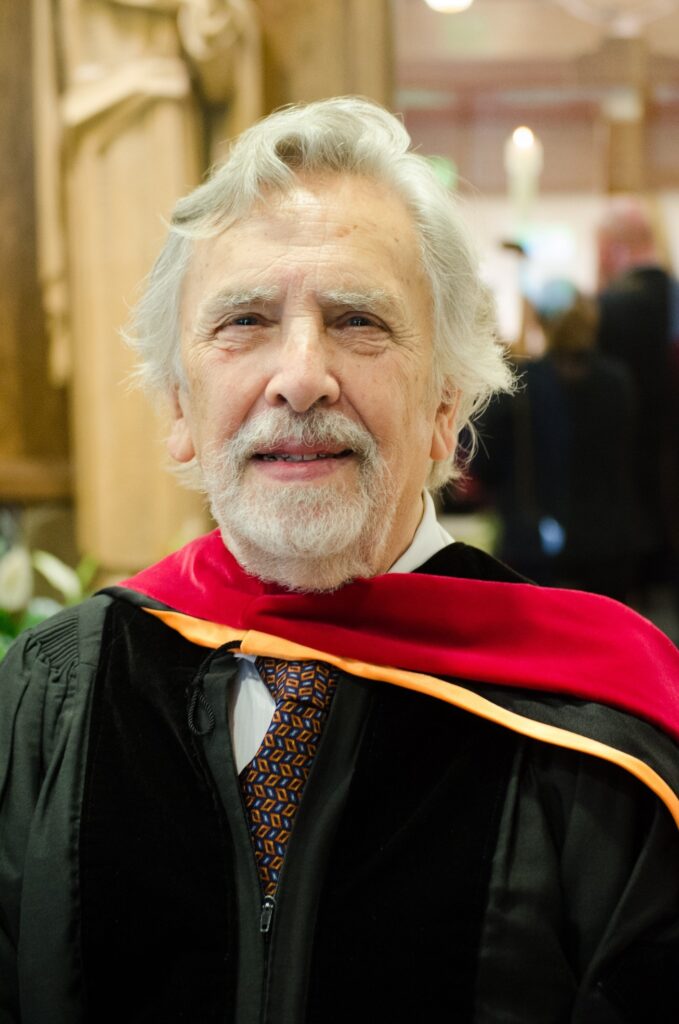By Rev. Dr. Harris Athanasiadis, Armour Heights, PC, Toronto

I was a 22-year-old first year PC M.Div. student at McGill. It was my first class in Theology. The professor was Douglas John Hall (DJH). He told us there would be time for questions after the lecture, and rather than scramble to take down notes, he gave us a detailed outline and summary of his lecture for us to have. He told us he preferred us to listen so as not to miss anything. I sat there and within minutes I was captivated. I soaked in everything like a dry sponge, and I was changed forever. Even as I began ministry a few years later I continued my theological studies at the graduate level under prof. Hall and I’ve never been the same now 35 years and still immersed in full-time congregational ministry.
What was it about DJH that was so captivating? He made theology and the way it interpreted the scriptures come alive. He made us feel like we were engaging the most important questions in the world, that what the church could offer was earth-shattering, life-transforming, of ultimate significance for the world and for each of us. He taught us to think contextually – about the time and place we were living and within which we were to do ministry. What did it mean to be a Christian within Canada, within North America, and within a faith that had emerged out of western Christendom? What kinds of questions do we ask about a church in decline? Are we simply concerned to discover strategies to recover the glories of our past or are we seeking deeper answers as to whether the losses are an invitation to do church differently and more authentically than we did it before when deeper questioning was not so urgent? He gave us hope that in decline we could become something better, closer to what the church and Christianity was before it became the official religion of empire/state.
The way into such questioning, seeking and listening for the Spirit DJH named: “Theology of the Cross.” The actual phrase came from Martin Luther the Reformer, but it also pointed to a way of thinking theologically and living as church which had always been there, although hidden on the margins because it was critical of power and a kind of church courting power for status, security and wealth. DJH helped us rethink Christian doctrine and the purpose of the church through the lens of this theology and it has been my orienting approach to church ministry feeding me with hope despite the challenges of finding purpose as church in a time of decline.

Following the way of the theology of the cross, DJH also taught us to look beneath the surface to what is hidden. While throughout the world and in our cities and towns there is much despair that is overt – war, violence, poverty and various forms of oppression, in our context as churches in Canada often the despair is covert – the inner struggles of persons who have achieved and succeeded on the outside but carry forms of despair within that undermine flourishing of spirit. There is no resurrection without the cross and without digging into the pain and struggle, offering it up to God who comes to be where we are at our worst. This coming to be with us and among us, DJH named a “being with” or an “ontology of communion.” If redemption through the cross of Christ leading to authentic resurrection is to begin to happen for us it must be a “redemption from within.” God is with us and only by being with us can we then begin to heal toward new life in the Spirit.
Even as DJH was in his 97th year when he died, he continued to think and write well into his 90s. From his more than one hundred articles and two-dozen books, I highlight his three-volume Theology: Thinking, Professing and Confessing the Faith, His one volume The Cross in our Context, and most recent books: Waiting for Gospel: An Appeal to the Dispirited Remnants of Protestant Establishment, and What Christianity is Not: An Exercise in ‘Negative’ Theology.
